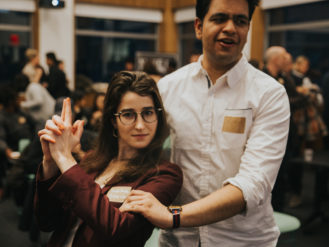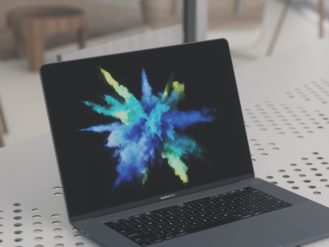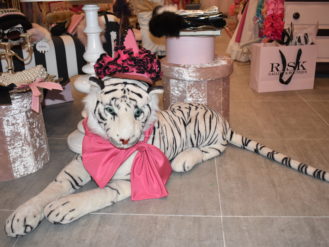A Showcase for ‘Smart Glasses’ Opens in Brooklyn
With a swanky new Cobble Hill shop, a tech startup aims to succeed where Google Glass failed to click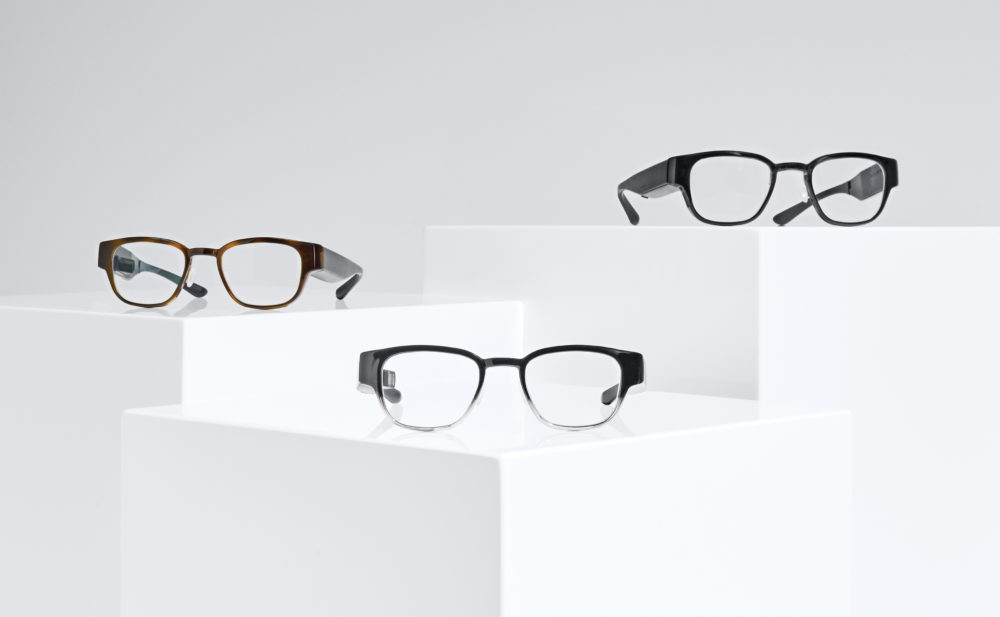
The new Focals are made in two styles (classic and round) and three colors: black, tortoise and "gray fade" (Photos courtesy of North)
An augmented-reality eyewear company that has kept its work under wraps for several years will make its retail debut in Brooklyn this week.
Tuesday marks the grand opening of the Focals by North retail storefront at 178 Court St. in Cobble Hill. The company, which will occupy about 7,200 sq. ft. over two floors, says this will be the world’s first smart-glasses store. “It’s been an exciting opportunity to launch something that’s weird, and new, and fun,” said Adam Ketcheson, the company’s chief marketing officer.
North is a Canadian startup founded in 2012. The company—which develops futuristic, human-to-computer interaction products—has raised over $135 million from investors that include the Amazon Alexa Fund, which invests in apps for Amazon’s virtual assistant.
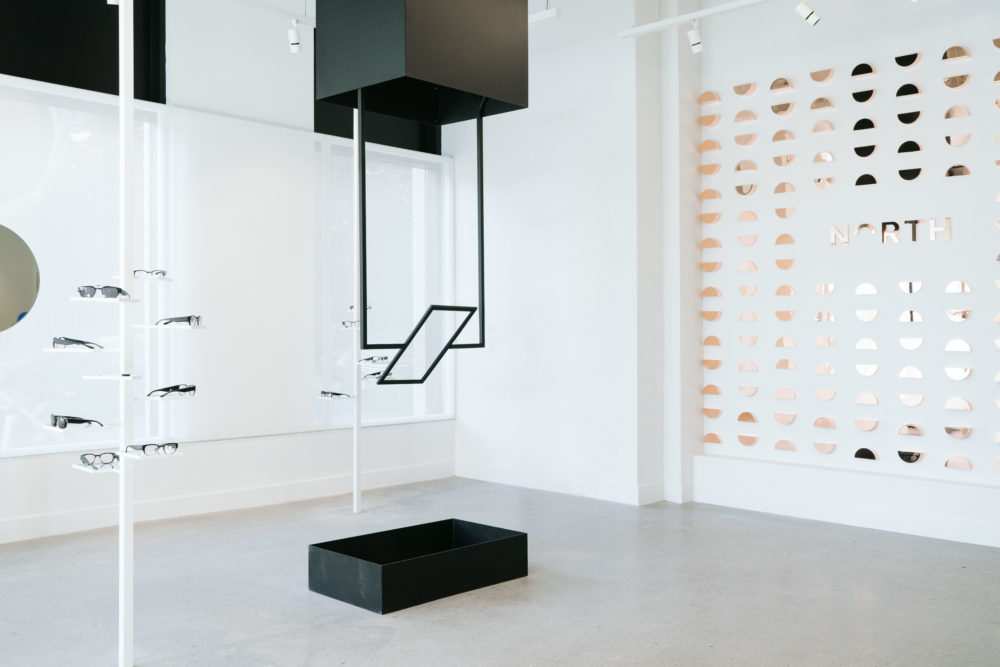
The new shop’s ground level features hovering screens that give customers a preview of the display inside the glasses
These glasses are North’s highest-profile product release, following a gesture-control armband that the company has discontinued in order to give its full attention to the new product. So-called “smart glasses” have struggled to gain traction in the past, from Google Glass to a failed attempt by Intel.
But North is counting on a few things to make smart spectacles actually stick. Focals are custom-built glasses with a transparent, holographic display that only the wearer can see. From this display you can scroll through texts, travel directions and weather notifications. The glasses even allow you to hail an Uber and speak with Alexa.
The display is controlled with a Loop, a small finger ring with a tiny, four-way joystick that’s included in the purchase, along with a case that doubles as a battery charger. The glasses sync with the wearer’s Android or Apple iOS device via Bluetooth.
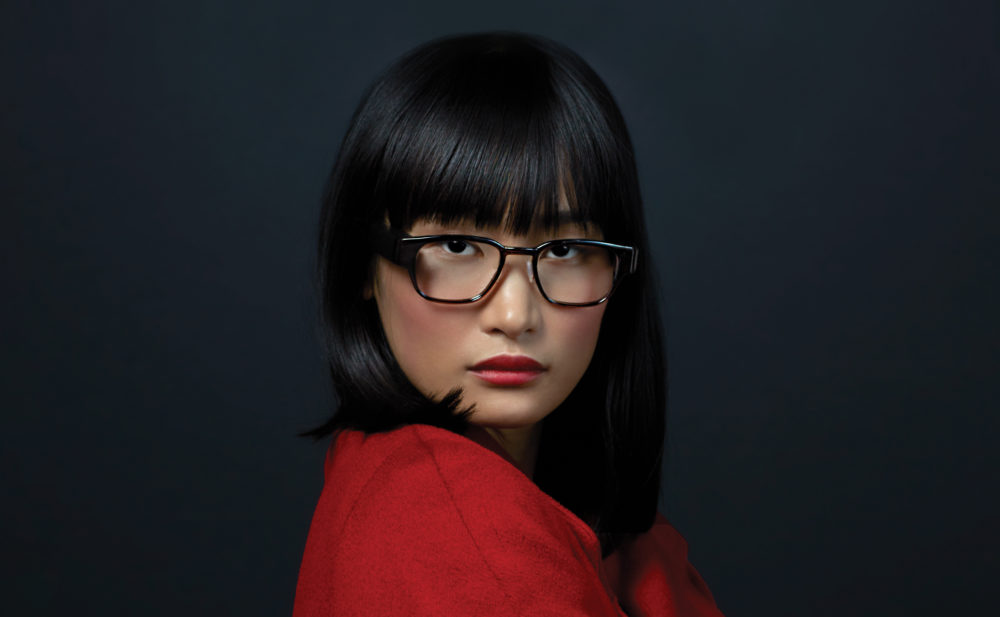
A model wears the classic version of the glasses, in black. They can be fitted with either prescription or non-prescription lenses
Glasses come in stylish designs, more like Warby Parker (which also has a store in the neighborhood) than geeky Google Glass. The idea, according to the website, is to make the technology “invisible—there when you need it, gone when you don’t.”
Ketcheson told The Bridge that retail space is a necessity, as you have to be custom fitted for Focals. It’s also crucial, he noted, for customers to understand how the technology looks and feels. “It’s incredibly important for people to get a hands-on experience, especially at our price point,” he said. (Focals will be offered in a variety of styles at $999.) “The entire retail model is so people can immersively understand what it is and get the right fit.”
North tapped San Francisco architecture firm Envelope A+D to customize their showroom in Cobble Hill, which is opening simultaneously with one in Toronto. The two-tier space, Ketcheson said, allows for “different phases” of a store experience.
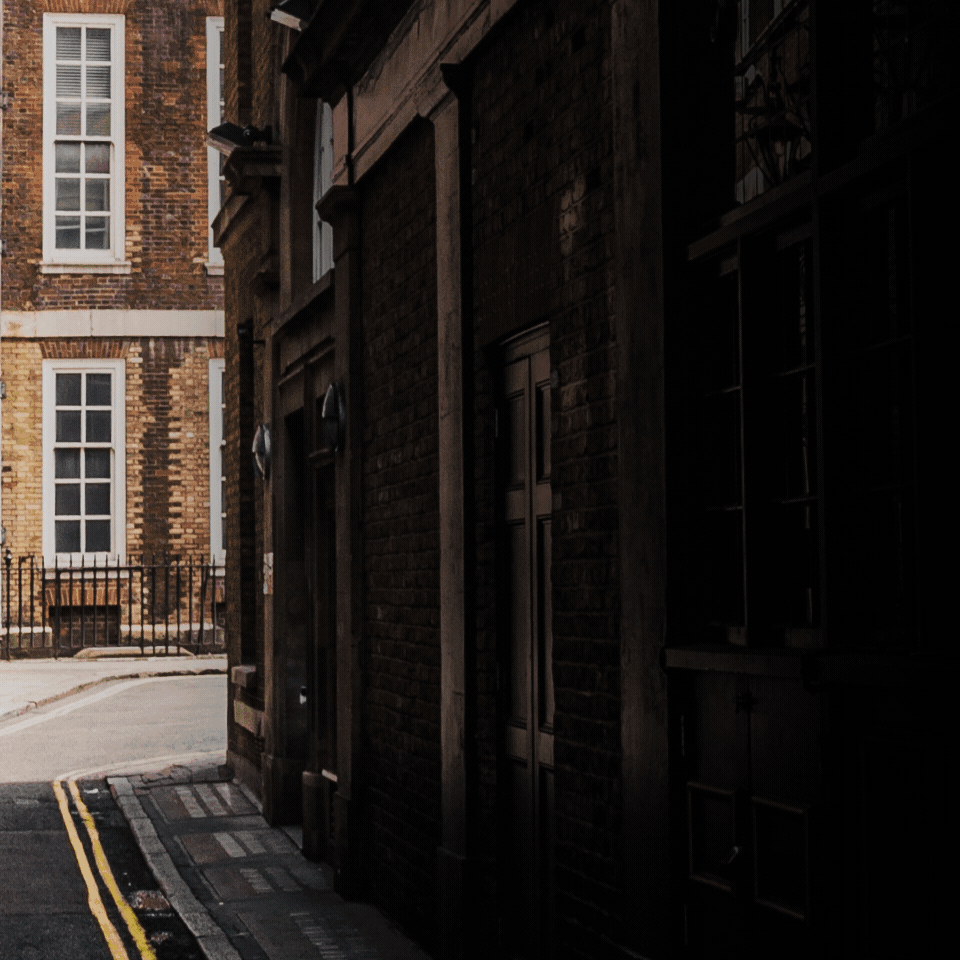
An example of the Focal’s display, which the company says is based on its own proprietary “retinal projection technology”
You walk into “immersion stations” upon entering the storefront, which offer a simulated version of the holographic display. (North designed the display to hover in front of you with a crisp image, but unobtrusively so.) After you see a preview of the display, employees guide you upstairs to “sizing rigs.” This is where you get a 3D scan of your head, offering a precise view of the shape of your head and face. That scan will allow North to custom-build the glasses. “It’s a little bit like stepping into the future,” as Ketcheson put it.
Then employees allow you to try out different sizes, styles and colors. Once you’ve decided on the details, the information is sent to North’s manufacturing facility in Canada. The final product is sent to the store for one last customer fitting. “It’s not unlike a traditional eyewear journey,” Ketcheson said. “The big difference is there’s way more tech along the way.”
North was intentional in choosing Cobble Hill for its first U.S. showroom. “We want our first wave of retail to be in neighborhoods,” Ketcheson said. “We’re looking at big international cities that have an influence on the rest of the world, but within those cities be neighborhood-based.”
The more intimate experience in a Brooklyn neighborhood like Cobble Hill, he said, was preferable to “a high-traffic SoHo location.”
Cobble Hill was also chosen due to its tenant mix and a neighborhood demographic “focused on lifestyle … who they are, how they curate their look,” Ketcheson said. “They’re early adopters when it comes to new things. But it’s not as showy as other parts of the city.”
North has been quietly building its Brooklyn retail team, alongside a company that now employs 450 people. “We have essentially been working on this project in secret for over four years,” said Ketcheson. The Cobble Hill opening marks a notable shift for the company and its public brand.
“For these engineers, physicists and scientists to now see we’ve built a retail store to house and sell a product they’ve slaved over in secret for four years—it’s unbelievable,” he said.





